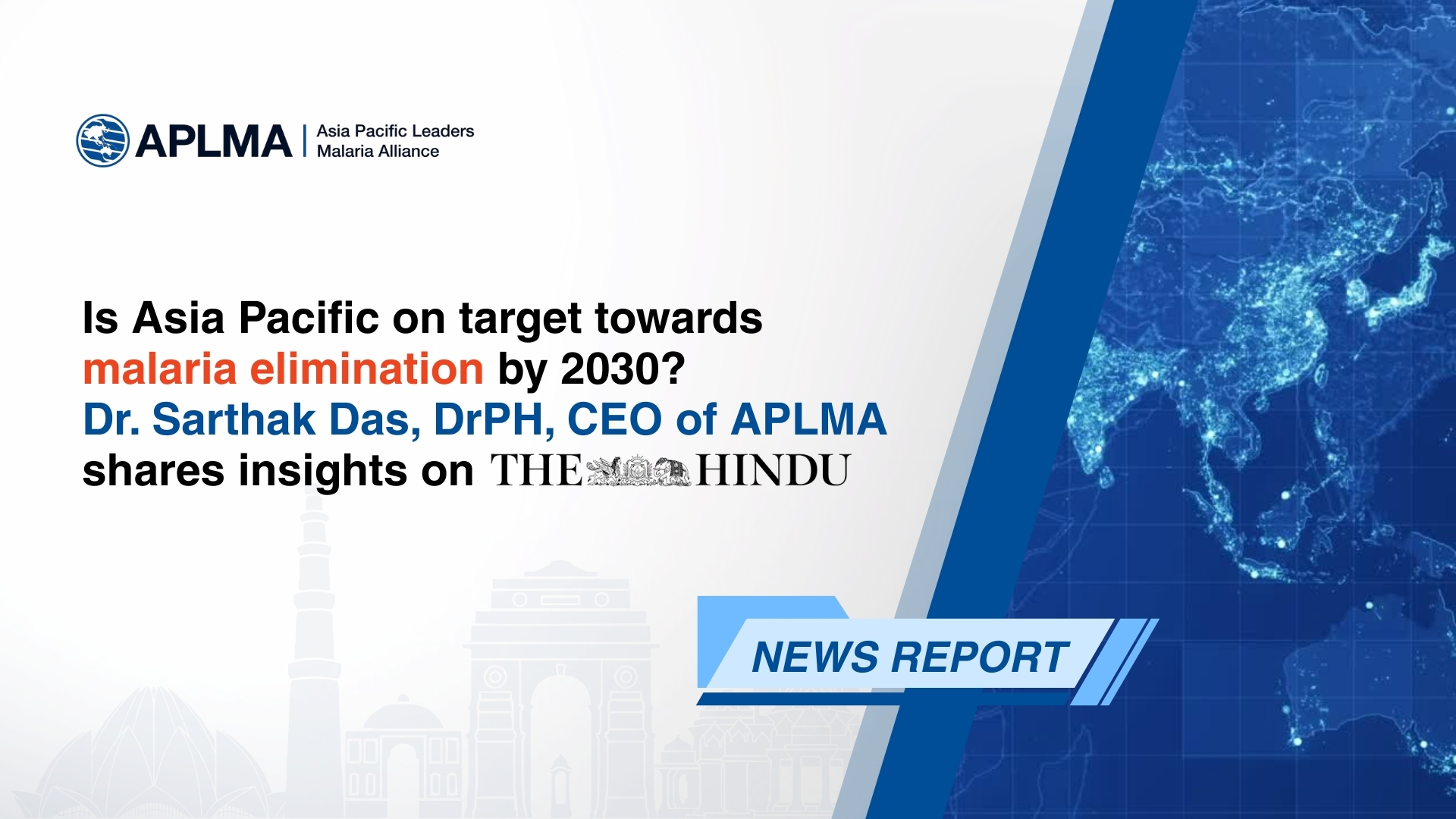
New paper in The Lancet Regional Health-Western Pacific details key strategies to realize elimination goal by 2025.
Singapore, 18 April 2022 – Ahead of World Malaria Day, a new paper published by The Lancet Regional Health-Western Pacific highlights key lessons drawn from Bhutan and Timor-Leste’s sustained malaria elimination efforts since their re-commitment to the World Health Organizations (WHO) E-2025 initiative last year. It details the approaches adapted by both countries to maintain the spotlight on malaria whilst preventing large COVID-19 outbreaks, as well as policies adopted to eliminate malaria by 2025.
Jointly authored by the Ministers of Health of Bhutan & Timor-Leste, heads of National Malaria Programs and the Asia Pacific Leaders Malaria Alliance (APLMA) Secretariat, the paper calls for national strategic plans to consider a whole-of-government approach to ensure progress towards malaria elimination and any existing and future infectious threats and pave the way for integrated response mechanisms across diseases.
“Our commitment to the E-2025 initiative is an important step to eliminate malaria in Bhutan by 2025. Despite being hampered by the COVID-19 pandemic, we need to push forward and continue to adapt our policies to sustain malaria interventions through strong political commitment and strengthening of health care systems,” said H.E. Lyonpo Dechen Wangmo, Honourable Minister of Health, Bhutan.
Accelerated by strong political commitment, sustained funding and partner support, most countries in Asia Pacific identified by the WHO under the E-2020 initiative have made tremendous progress, with cases halved since 2010 and deaths reduced by almost 90%. However, the pandemic has presented additional challenges to some countries including Bhutan and Timor-Leste, with issues such as new outbreaks of malaria transmission, greater risk of imported cases from high burden neighbouring countries and shifting priorities due to COVID-19.
“It is undeniable that COVID-19 has slowed down our progress towards malaria elimination, in contrast to our progress made prior to 2019 to control malaria transmission, especially with indigenous cases. Our focus on sustainability and a whole-of-government approach to ensure progress towards malaria, is critical for our country,” said H.E Dr Odete Maria Freitas Belo, Honourable Minister of Health, Timor-Leste.
“Whilst there are existing and future threats that can reverse the progress of malaria elimination made to date, key elements such as sustaining political commitment, systematically collaborating across borders, empowering communities and strengthening health systems particularly through surveillance and data management are imperative for countries to remain on track,” said Dr Sarthak Das, Chief Executive Officer, APLMA.
He continued: “We hope the lessons and examples shared by Bhutan and Timor-Leste provide inspiration for other near-elimination countries working towards malaria-free status by 2025. APLMA and APMEN stand committed to help them mobilise innovations and tailored solutions to realize the goal.”
The E-2025 initiative is an extension of the E-2020 initiative where WHO identified and supported countries to eliminate malaria by 2020. As part of the renewed commitment to eliminate malaria by 2025, the WHO E-2025 initiative includes eight countries from the Asia Pacific region. This includes the Democratic Republic of Korea (DPRK), Thailand, Vanuatu, in addition to the original E-2020 countries Bhutan, Malaysia, Nepal, Republic of Korea, Timor-Leste.
The full paper Sustaining progress towards Malaria Elimination by 2025: Lessons from Bhutan and Timor-Leste, is available on The Lancet Regional Health-Western Pacific and offers valuable examples of malaria interventions from Bhutan and Timor-Leste for near-elimination countries to remain on track.
For further information and media enquiries:
- Dimple Natali - Communications Director, APLMA;
E: dnatali@aplma.org
T: +65 8569 1890 - Rachael Teo - GCI Health;
E: rachael.teo@gcihealth.com
T: +65 9815 8421
About APLMA and APMEN
The Asia Pacific Leaders Malaria Alliance (APLMA) is an affiliation of Asia and Pacific heads of government, formed to accelerate progress against malaria and to eliminate it in the region by 2030. APLMA was created by the East Asian Summit (EAS) leaders in 2013 to further strengthen anti-malaria efforts, both to help protect hard-won national gains and, ultimately, to defeat malaria in the region altogether. To guide this work, the Asia Pacific Leaders’ Elimination Roadmap sets out the strategic priorities for achieving the 2030 goal.
The Asia Pacific Malaria Elimination Network (APMEN) is a network of countries and stakeholders, committed to eliminate malaria in Asia Pacific by 2030.
About the E-2025 initiative
Since 2017, the WHO has supported a group of 21 countries with a low burden of malaria to reach their elimination goals through the WHO “E-2020 initiative”. Building on the successes of the E-2020, WHO identified a new group of 25 countries that have the potential to stamp out malaria within a 5-year timeline in 2021. These countries will receive specialized support and technical guidance as they work towards the target of zero malaria.
.svg)




.jpg)




